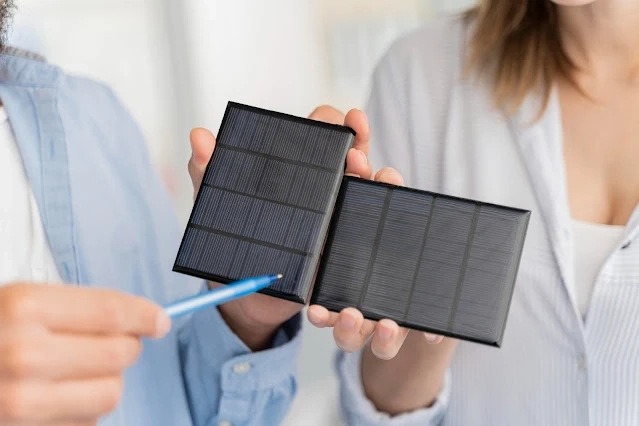Solar panels save people money by generating electricity from the sun, which can be used to power homes and businesses. This reduces or eliminates the need to purchase electricity from utility companies, which can be expensive. Additionally, many governments offer financial incentives, such as tax credits and rebates, for individuals and businesses that install solar panels. These incentives can also help to offset the cost of installation and make solar power more affordable.
Can solar panels be installed in a commercial building?
Yes, solar panels can be installed on commercial buildings. In fact, many businesses choose to install solar panels to generate their own electricity and reduce their energy costs. The process for installing solar panels on a commercial building is similar to that for a residential building, but the scale is typically larger and there may be additional considerations, such as the size and orientation of the roof or the electrical capacity of the building. Commercial solar installation requires a team of professionals, including electricians, engineers, and solar installers, who have experience with large-scale projects.
Solar panels & cloudy weather
Solar panels can still generate electricity during cloudy weather, although the amount of electricity produced will be less than on a sunny day. This is because solar panels use sunlight, not heat, to generate electricity, so they are still able to produce power even on overcast days. However, cloudy weather can reduce the amount of sunlight that reaches the panels, which in turn reduces the amount of electricity they produce. On a completely overcast day, the output from a solar panel may be as low as 10-25% of its peak capacity.
Additionally, some solar panel technologies such as Thin-film solar panels are less efficient in low-light conditions, therefore, the output may be lower than other technologies like monocrystalline and polycrystalline.
To compensate for this, solar systems are often designed with enough capacity to produce more electricity than the building needs on a sunny day, so that there is still enough power during cloudy weather or at night. Additionally, many solar systems are connected to the grid, so they can draw power from the grid when needed and feed excess power back into the grid when the sun is shining.
Solar panels in cold climates
Solar panels can operate effectively in cold climates, but there are some considerations to keep in mind. Cold temperatures can affect the performance of solar panels in a few ways:
Cold temperatures can cause solar cells to become less efficient, reducing the amount of electricity they produce. However, this effect is typically small and can be compensated for by using more efficient solar cells.Cold temperatures can cause the solar panels to become more brittle, which can increase the risk of breakage. To mitigate this, solar panels used in cold climates are often designed to be more durable and able to withstand the increased stress caused by temperature changes.Snow and ice can accumulate on the solar panels, reducing their effectiveness. This can be mitigated by installing solar panels at an angle that allows snow and ice to slide off easily, or by using heating elements to melt the snow and ice.Cold temperatures can also cause the solar panels to contract and expand, which can stress the connections between the panels and the rest of the solar system. This can be mitigated by using flexible connections that can accommodate these changes in temperature.Overall, solar panels are capable of producing energy in cold climates, but it's important to take into account the above-mentioned considerations during the planning and installation process to ensure optimal performance.
Are solar panels worth the investment?
Whether or not solar panels are worth the investment depends on a variety of factors, including the cost of electricity in your area, the cost of the solar panels and installation, and government incentives and tax breaks available.
In general, solar panels can be a worthwhile investment for many homeowners and businesses. They can help to reduce or eliminate electricity costs, increase energy independence, and lower carbon emissions. Additionally, the cost of solar panels and installation has been decreasing over time, making them more affordable for many people.
It's also worth noting that many countries offer financial incentives for solar power, such as tax credits, rebates, and net metering programs, which can significantly reduce the cost of solar power and make it more accessible to a wider range of people.
However, it's important to do your own research, consider your own energy consumption and costs, and consult with professionals to determine whether solar panels are a good investment for your specific situation. A solar assessment can also be done to determine the suitability of the location, feasibility, and estimated costs and savings.


